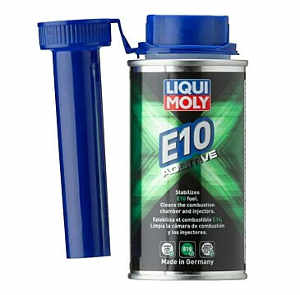Rising Global Oil Prices and E10 Fuel

As we move further into 2023, private and motor trade drivers are starting to feel the pinch once again at the fuel pumps, with global oil prices hitting their highest point in 2023.
On September 19th, Brent Crude oil surged to a whopping $95 per barrel, driven in part by concerns raised by the International Energy Agency (IEA) regarding production cuts in Saudi Arabia and Russia, which could lead to a significant shortage in oil supply.
This translates into higher fuel costs for motorists, only adding to the cost-of-living crisis and even more reasons to shop around for that private or motor trade insurance policy.
The latest data from RAC Fuel Watch reveals that the average price of petrol has reached 155.5p per litre, while diesel now stands at an average of 159.05p per litre. In just a little over a month, petrol prices have climbed by 10p per litre, while diesel has seen an increase of approximately 13p.
This price surge comes on the heels of a report by the Competition and Markets Authority (CMA) in July 2023, which pointed to a weakening competition in the UK’s fuel retail sector since 2019. The CMA also highlighted that motorway service stations charge around 20p more per litre for petrol and 15p more for diesel than other fuel stations nationwide.
Chief Executive of the CMA, Sarah Cardell, said: “Competition at the pump is not working as well as it should be, and something needs to change swiftly to address this.
“Drivers buying fuel at supermarkets in 2022 have paid around 6 pence per litre more than they would have done otherwise due to the four major supermarkets increasing their margins.
“This will have had a greater impact on vulnerable people, particularly those in areas with less choice of fuel stations.
“We need to reignite competition among fuel retailers. It needs to be easier for drivers to compare up-to-date prices, so retailers have to compete harder for their business.
“This is why we are recommending the UK government legislate for a new fuel finder scheme which would make it compulsory for retailers to make their prices available in real-time.”
E10 Fuel: The Future of Petrol
Amid these rising fuel prices, E10 fuel is now the standard grade at forecourts across the UK and still creates confusion. So, what exactly is E10, and what do you need to know about it?
Currently, standard petrol grades contain up to 5% bioethanol, referred to as E5. E10, on the other hand, increases the renewable energy component produced from crops to 10%. This greener fuel can potentially reduce CO2 emissions by an estimated 750,000 tonnes annually, equivalent to taking approximately 350,000 cars off the road.
Compatibility and Considerations with E10 Fuel
Since 2011, all new cars sold in the UK must be E10 compatible. However, it’s essential to note that not all vehicles are compatible with E10 fuel. Previously, some research highlighted as many as 600,000 vehicles on UK roads were not designed to run on E10.
To determine if your car is E10-compatible, you can find official E10 online checks. If you own a vehicle registered before 2002, it’s generally advisable not to use E10, as issues have been reported.
In particular, classic car owners are urged to be cautious and avoid inadvertently filling up with E10, as it could result in costly damage to vehicle components.

Using E10 fuel in an incompatible car won’t necessarily cause immediate damage. Still, it can lead to long-term issues with seals, plastics, and metals due to the corrosive properties of bioethanol.
E10 is also hygroscopic, meaning it absorbs atmospheric moisture, potentially leading to condensation in fuel tanks if the car remains unused for extended periods.
Some motor trade advisers suggest owners of E10-compatible cars may experience reduced fuel efficiency compared to E5, as E10 contains 5% more ethanol.
E10 Fuel and The Environment
Whether E10 is a good or bad development depends on one’s perspective. Environmental groups applaud its carbon-offsetting potential, while the government sees it as a step toward achieving emissions targets.
However, it’s worth noting that E10 is less fuel-efficient than the current E5 blend, particularly in cars with smaller engines. Drivers of older, incompatible vehicles may need to opt for more expensive E5 fuel, which forecourts will likely offer as a premium option.
Despite the challenges, the benefits of E10, particularly its potential to reduce CO2 emissions, are a step in the right direction for greener transportation in the UK motor trade industry.







